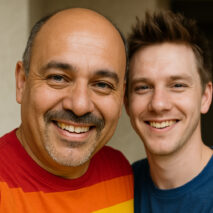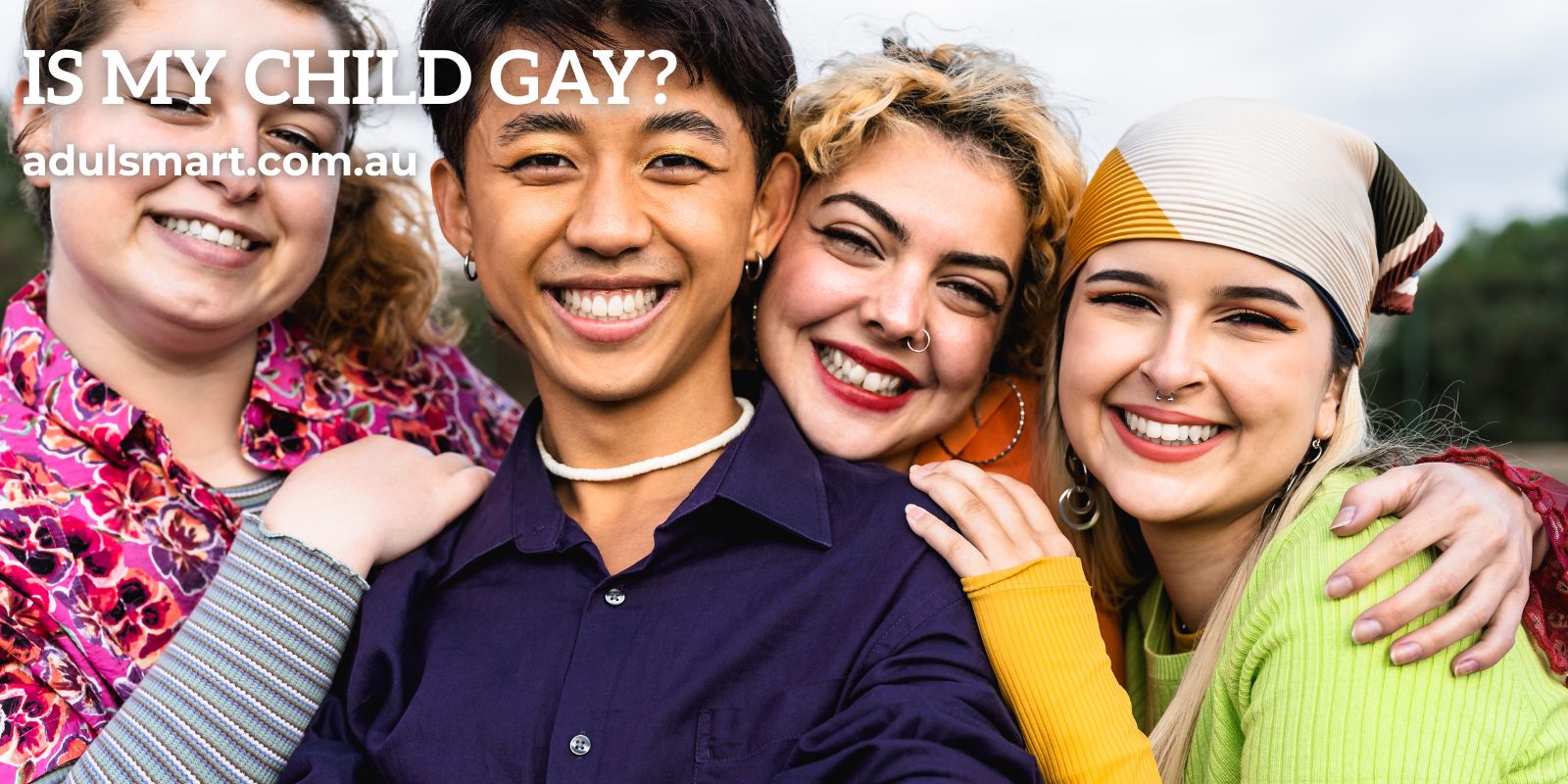What To Do When My Child Is Gay? Understanding, Support, and Respect
Is my child gay? What do I do when my child is gay? Many parents ask this quietly, unsure how to respond. This guide offers understanding, respectful communication, and resources to support children exploring their sexuality.
Parenting often brings questions without easy answers. Few are as sensitive as wondering about your child’s sexuality. Asking “is my child gay?” can spark fear, confusion, or curiosity. The answer is rarely simple, and often, children themselves need time to figure it out. What matters most is creating a safe, supportive space where they can share openly without fear of judgment.
Table of Contents – My Child Is Gay
- Recognizing Possible Signs of Sexual Orientation
- Communicating Without Pressure
- Supporting a Child Exploring Identity
- Challenging Myths and Misconceptions
- Helpful Resources for Parents
- Frequently Asked Questions
Recognizing Possible Signs of Sexual Orientation
Parents sometimes notice behaviours or preferences that raise questions. A son might not show interest in girls when his peers do, or a daughter may talk about female friends in more affectionate ways. These moments may lead a parent to quietly ask, “is my child gay?” But signs are not proof. Many children experiment with expression, and what looks like a signal of sexuality may simply be personality or curiosity.
It is important not to rush to conclusions. Sexual orientation develops over time, and young people may not have words for their feelings. Instead of focusing on labels, focus on being approachable. If children feel safe, they are more likely to share when ready. Articles such as how do you know you are gay show that discovering sexuality is often a gradual process, not a single moment.
Communicating Without Pressure
Open conversation is essential. If you suspect your child may be questioning, approach with curiosity, not interrogation. Statements like “you can talk to me about anything” work better than direct questions like “are you gay?” Pushing too hard may shut down trust. Listening first creates space for honesty later.
Parents sometimes look for definitive answers, but sexuality cannot be confirmed by observation alone. An article from Focus on the Family advises patience, even if their perspective is conservative. What remains true across viewpoints is that children benefit when parents avoid assumptions. Respecting privacy and being consistent in love are stronger than any scripted talk.
Supporting a Child Exploring Identity
If your child does share that they are gay, bisexual, or questioning, your response will shape their confidence. Rejection can harm self-esteem and mental health, while acceptance strengthens resilience. Research shows LGBTQ+ teens with family support are far less likely to struggle with depression or self-harm. A warm hug and words like “I love you no matter what” mean more than advice.
You do not need all the answers. You can learn alongside your child. Websites like Minus18 provide guidance for Australian parents supporting LGBTQIA+ youth. Exploring these resources together sends a message: their identity is not something to hide, but something to understand and celebrate.
Challenging Myths and Misconceptions
Many myths still surround the question, “is my child gay?” Some parents believe media or friends can “turn” someone gay. Others assume that being gay means a child will face only hardship. These ideas are not supported by evidence. Sexual orientation is not caused by a single influence. It emerges naturally and is part of human diversity.
Parents who cling to myths may react with fear rather than support. Instead, challenge misinformation. Read stories like my kid is gay to hear from families who moved from worry to acceptance. Learning from others helps dismantle stereotypes. When myths fall away, love has room to grow.
Helpful Resources for Parents
Guidance is available for parents who want to do better. Books, counselling, and community groups offer reassurance. Online articles such as how do you know if your child is gay answer common questions with honesty. Local LGBTQ+ centres often provide parent workshops, support lines, and reading lists.
Your child may also benefit from peer networks. Communities such as a gay teen remind young people they are not alone. Shared experiences reduce isolation. Encouraging your child to connect with safe, supportive peers shows them you care about their happiness.

Frequently Asked Questions – My Child Is Gay
Can I tell if my child is gay by their behaviour?
No. Behaviour, clothing, or interests do not confirm sexual orientation. The only way to know is if your child chooses to share.
Should I ask my child directly if they are gay?
It is better to create an open environment than to pressure them with direct questions. Let them share when ready.
How can I show support if my child comes out?
Affirm your love first. Then, seek resources together. Simple acceptance can reduce risks of anxiety and depression.
What if I feel unprepared to support them?
You don’t need all the answers. Reach out to support groups, counsellors, or organisations that help parents of LGBTQ+ youth.
Will being gay affect my child’s future happiness?
No. With support and acceptance, LGBTQ+ individuals can thrive, build families, and live fulfilling lives.

Meet PJ Weir, former Gay Exchange stalwart and gay rights advocate. Now caring for his mother in Queensland, he reflects on a decade of LGBTQ+ activism.








Leave a Reply